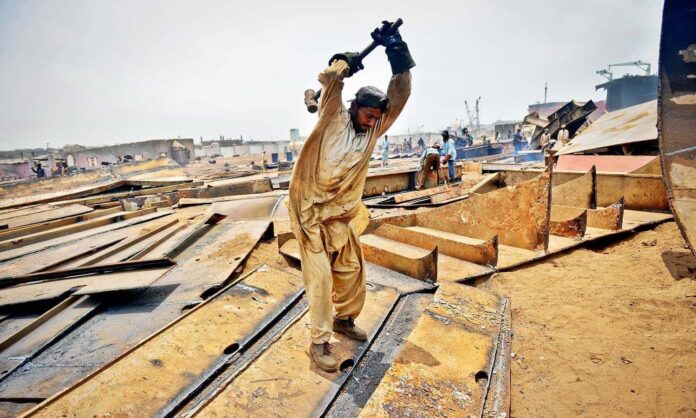ISLAMABAD: Following Prime Minister (PM) Imran Khan’s announcement of a special incentives package for the construction sector in April 2019, the Islamabad Directorate of Industries and Labour has witnessed a 90 per cent increase in the number of construction firm registrations and allied services.
The prime minister had announced a relief package for the construction sector, aimed at stimulating economic activity and generating employment to overcome the economic impact of Covid-19 in Pakistan.
According to Islamabad Industries and Labour Director Waqar Anwar, of the total 241 construction firms registered since 2019, over a 100 were registered during the last six months, which is a testimony of the business community’s trust and confidence in the government’s policies, particularly in construction incentive package, and that it will help spur economic activity in the country.
“The department also registered over 175 firms in allied services of the construction sector, including engineering consultancy, interior designing, general order suppliers, pipes and fitting, appliances and electrical services,” Anwar said.
Further, the directorate has provided facilitation to all those interested in the registration of firms under the Partnership Act, 1932. Not only has the firm registration process been simplified but the time period for issuance of a certificate has also been curtailed to two days.
Industries and Labour Department director said that firms are registered under the Partnership Act, 1932 by the Industries Department of the Islamabad Capital Territory Administration (ICTA) for running small to medium businesses in the capital.
“Builders and developers want to make the best use of the incentive package by starting their projects before end-2020 and finishing the same before 2022,” Anwar remarked.
To a query, he said that being the second largest industry in Pakistan with unprecedented potential, the government aims to develop the sector to fill the gap and bring it at par with the existing market demands and generate employment.
Highlighting the incentives package, Anwar said, the federal cabinet approved an amnesty scheme under the package, allowing the investors to invest in the sector without disclosing their source of income or proving the money-trail. Under the package, provisions of Section-111 have been exempted. This makes it easier to construct and sell a property for speculative/investment purposes.
However, he said, the terms of exemption will only include projects that are commenced by December 31, 2020, and completed till September 30, 2022. A project will only be considered to be complete if the grey structure has been completed till September 30, 2022, and the developer has completed landscaping by that time and constructed 50 per cent sub-grade level roads on the project site.
“This is to ensure the timely completion of projects and increase economic activity within the time frame,” he maintained.
He said the government will also waive off the withholding tax on materials in the construction sector except for cement and steel.
By amending the Finance Act, 1989, a reduced rate of advance tax from 10pc to 5pc was introduced for sales of immovable property through auction. Sales tax has been reduced in coordination with the provinces, with Punjab and Khyber Pakhtunkhwa (KP) agreeing to reduce it to 2pc.
Anwar said, the cabinet also granted a one-time exemption on Capital Gains Tax for a residential house, measuring 500 square yards or less and/or in case of a flat of 4,000 square feet or less.
Predominantly termed as an agricultural economy, the construction sector is the second largest sector, contributing about 12pc to 13pc to the economy. It is a sector that impacts millions of lives all across the nation. By bringing together several governmental and non-governmental departments, actors in the public and private sector that decide on how to impact not only the sector itself but also over 70 allied industries.
This, in turn, kick-starts action for the entire value chain including various components like strategizing transport systems for delivery and accessibility, the workers including daily wage labourers, plumbers, technicians, builders, management of builders and the availability and provision of essential construction material i.e. cement, sand, steel, paint, hardware etc.
























